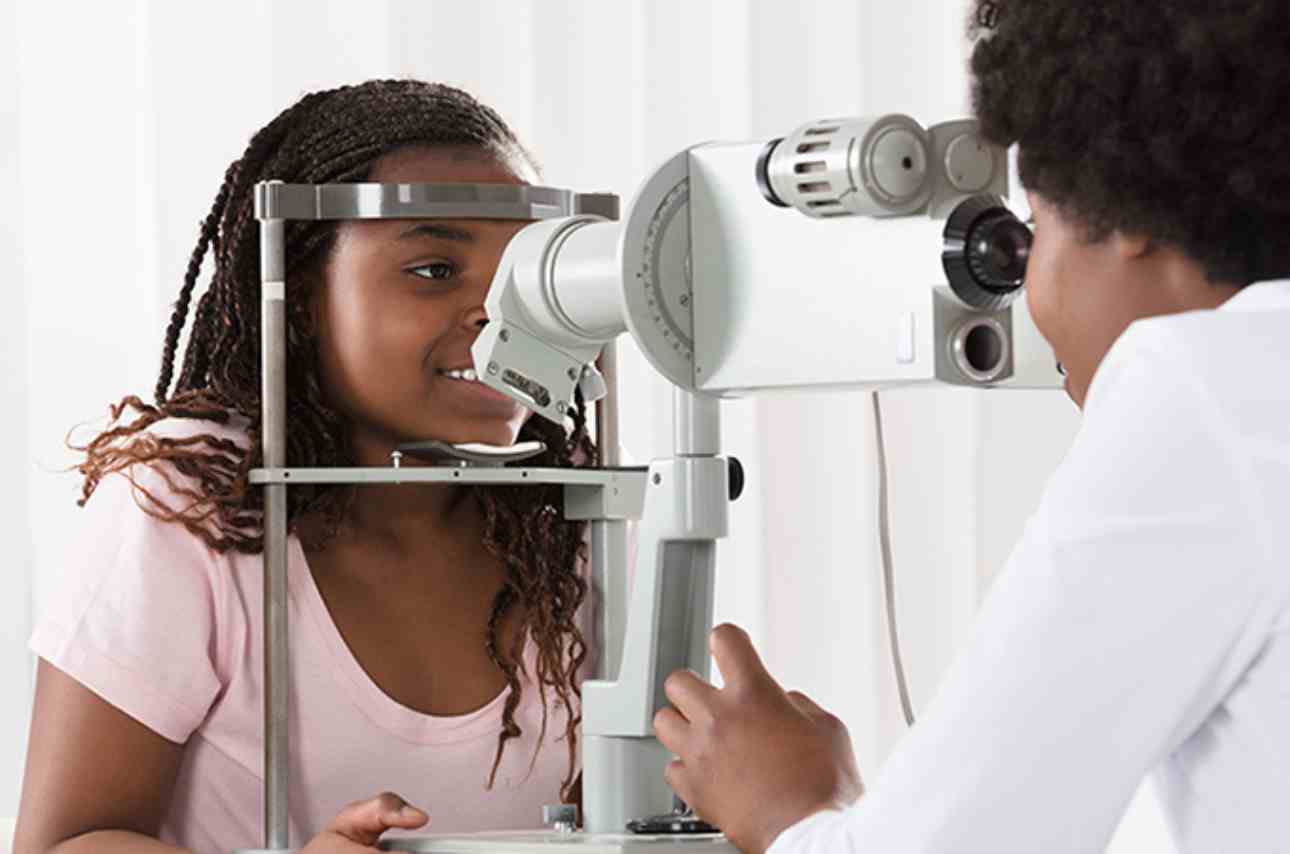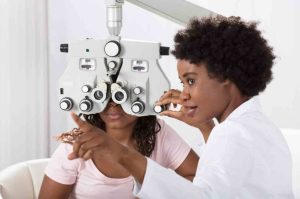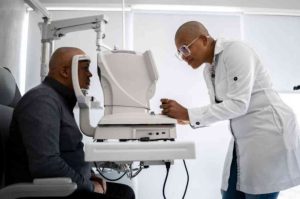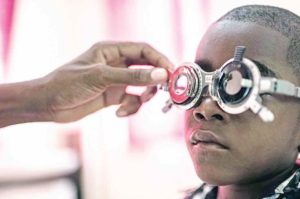
In a world filled with constant screen time and environmental challenges, taking care of your vision has never been more crucial. From the bustling streets of Lagos to the serene landscapes of Abuja, the need to prioritise eye health resonates across every corner of Nigeria.
In this comprehensive guide, we delve into the essential practices and habits that can help you safeguard your eyesight and promote optimal vision. From practical nutrition tips tailored to Nigeria’s unique culinary landscape to the importance of regular eye check-ups in bustling urban centres, we cover it all.
As we navigate through the digital age, where smartphones and computers have become ubiquitous, understanding how to protect your eyes from digital strain is paramount. We aim to equip you with actionable insights and strategies to combat the challenges posed by modern-day technology while embracing the beauty of Nigeria’s rich visual tapestry.
Join us on this enlightening journey as we unlock the secrets to maintaining good eyesight in Nigeria, empowering you to embrace a lifestyle that cherishes and preserves the gift of vision.

Understanding the Importance of Eye Health
Our eyes are not just windows to the world; they are vital components of our overall well-being and quality of life. Understanding the significance of maintaining good eyesight goes beyond just seeing clearly; it impacts how we experience and navigate the world around us. Let’s delve into why eye health should be a priority for everyone.
Impact of Poor Eyesight
Neglecting eye health can have profound consequences on our daily activities and productivity. Poor eyesight can lead to difficulties in reading, driving, recognising faces, and engaging in various tasks that are essential for independent living. It can also affect our performance at work or in school, hindering our ability to learn and excel. Imagine not being able to enjoy your favourite book or navigate your surroundings with ease – that is the reality for many individuals facing vision challenges due to neglecting eye health.
Unique Challenges in Nigeria
In Nigeria, specific environmental and lifestyle factors can impact eye health significantly. Factors such as exposure to harmful pollutants, dust, and intense sunlight can contribute to various eye conditions if adequate precautions are not taken. Additionally, limited access to quality eye care services in certain regions can pose challenges for early detection and management of eye-related issues. It is essential for individuals in Nigeria to be aware of these unique challenges and take proactive steps to protect their vision.
Remember, our eyes play a crucial role in how we experience the world, and prioritising eye health is essential for maintaining a good quality of life. By being proactive in caring for our eyes and addressing any concerns promptly, we can safeguard our vision and overall well-being for years to come.
For more information on the importance of eye health, you can visit Keep an Eye on Your Vision Health or The importance of eye health.

Nutrition for Healthy Eyes
The role of nutrition in maintaining good eyesight cannot be overstated. What you eat directly impacts your eye health, so incorporating the right foods into your diet is essential for preserving your vision. Let’s explore the significance of nutrition in supporting healthy eyes.
Superfoods for Nourishing Your Vision
Certain superfoods are packed with essential nutrients that are beneficial for eye health. Lutein and zeaxanthin, known for their protective properties against age-related macular degeneration, are commonly found in foods like kale, spinach, and collard greens. These antioxidants help filter harmful high-energy blue wavelengths of light and protect the retina. Additionally, vitamin E plays a crucial role in maintaining healthy cells and tissues in the eyes. Nuts, seeds, and vegetable oils are rich sources of vitamin E that can contribute to your overall eye health. Moreover, zinc is essential for transporting vitamin A from the liver to the retina to produce melanin, a protective pigment in the eyes. Including zinc-rich foods such as red meat, poultry, beans, and nuts in your diet can support optimal eye function.
Traditional African Foods Beneficial for Eyesight
In Nigeria, traditional African foods offer a treasure trove of nutrients that promote good eyesight. Okra, a popular vegetable in Nigerian cuisine, is a good source of vitamin C, which supports the blood vessels in the eyes and reduces the risk of cataracts. Red palm oil, a staple in many Nigerian dishes, contains beta-carotene and vitamin E, excellent for maintaining healthy vision. Including African leafy greens like ugu (fluted pumpkin) and ewedu (jute leaves) in your meals can provide a boost of vitamins and minerals crucial for eye health. By incorporating these traditional foods into your diet, you not only enrich your culinary experience but also nurture your eyes with the essential nutrients they need to function optimally.
Remember, a balanced diet rich in superfoods and traditional African fare can significantly contribute to maintaining good eyesight and ensuring your eyes stay healthy for years to come.

Lifestyle Habits to Preserve Vision
Our eyes play a vital role in our daily lives, and it’s crucial to adopt healthy lifestyle habits to maintain good eyesight. From digital eye strain to regular eye check-ups, here are some essential practices to safeguard your vision.
Protecting Eyes from Digital Strain
In today’s digital age, prolonged screen time can lead to digital eye strain, causing discomfort and potential long-term effects on eyesight. To reduce digital strain, consider implementing the following tips:
- Follow the 20-20-20 Rule: Every 20 minutes, take a 20-second break and focus your eyes on something at least 20 feet away to reduce eye fatigue.
- Adjust Screen Brightness: Ensure your screen brightness is level with your surroundings to prevent glare and minimise eye strain.
- Blink Regularly: Remember to blink more often while using digital devices to keep your eyes moist and reduce dryness.
- Optimise Workspace Ergonomics: Position your screen at eye level, maintain good posture, and adjust lighting to create a comfortable environment for your eyes.
- Regular Eye Exams: Schedule routine eye check-ups to monitor your eye health and address any concerns promptly.
For more tips on combating digital eye strain, check out Tips to reduce digital eye strain | Lifespan.
Importance of Regular Eye Check-ups
Regular eye examinations are essential for maintaining optimal eye health and detecting potential issues early on. Here’s why scheduling routine eye check-ups is crucial:
- Early Detection of Eye Conditions: Regular eye exams can help identify eye conditions such as glaucoma, cataracts, or macular degeneration in their early stages when treatment is more effective.
- Prescription Updates: Eye check-ups ensure your prescription glasses or contact lenses are up to date, improving your vision clarity and comfort.
- Overall Health Monitoring: Eye exams can also reveal underlying health conditions like diabetes or high blood pressure, as certain signs may be visible in the eyes.
- Preventative Care: More than 50% of sight loss is preventable, making regular eye check-ups a proactive step in maintaining good eyesight.
Learn more about the Importance of getting eyes tested | nidirect and how regular eye check-ups can contribute to your overall well-being.

Environmental Factors Affecting Eyesight in Nigeria
Environmental factors like pollution, dust, and UV exposure play a significant role in influencing eye health in Nigeria. The challenging environmental conditions in Nigeria can pose risks to eyesight, making it crucial to adopt strategies for eye protection to maintain good vision.
Strategies for Eye Protection in Nigerian Environment
- Wear Sunglasses: Investing in high-quality sunglasses that offer UV protection can shield your eyes from harmful ultraviolet rays, reducing the risk of eye damage caused by excessive sun exposure.
- Use Protective Eyewear: When engaging in activities that expose your eyes to dust, debris, or pollutants, such as construction work or outdoor chores, wearing protective eyewear like goggles can prevent foreign particles from entering your eyes.
- Avoid Smoke Exposure: Limiting exposure to smoke, whether from cooking indoors or tobacco smoke, can help reduce irritation to the eyes and lower the risk of developing eye conditions associated with smoke exposure.
- Keep Eyes Hydrated: Dry and dusty environments can lead to eye dryness and discomfort. Using lubricating eye drops can help keep your eyes hydrated and alleviate symptoms of dryness caused by environmental factors.
- Regular Eye Check-ups: Schedule regular eye examinations with an optometrist to monitor your eye health and detect any issues early on. Early intervention can prevent further complications and preserve good eyesight.
By implementing these strategies for eye protection in the Nigerian environment, individuals can safeguard their eyes against environmental hazards and maintain optimal eye health for improved vision.

Conclusion
Eye health is a vital aspect of overall well-being that should not be overlooked. In Nigeria, where the prevalence of eye problems is significant, prioritising good eyesight is crucial for a better quality of life. Throughout this ultimate guide, we have explored various ways to maintain and improve eye health, from the importance of regular eye check-ups to lifestyle adjustments that can benefit your vision.
Importance of Prioritising Eye Health in Nigeria
Ensuring good eyesight in Nigeria is imperative due to the high magnitude of blindness and visual impairment prevalent in the country. The Nigerian National Eye Health Guidelines aim to address these issues and reduce the burden of eye-related conditions. Access to primary eye care facilities is crucial in combating preventable vision loss, particularly in rural areas where conditions like trachoma pose a significant risk.

Taking Proactive Steps Towards Maintaining Good Eyesight
By implementing the recommendations outlined in this guide, such as consuming a balanced diet rich in eye-friendly nutrients, protecting your eyes from harmful UV rays, and avoiding excessive screen time, you can proactively safeguard your vision health. Additionally, prioritising regular eye examinations and seeking prompt treatment for any eye conditions can help preserve your eyesight in the long run.
In conclusion, safeguarding your eye health should be a top priority for everyone in Nigeria. By raising awareness, promoting preventive measures, and advocating for accessible eye care services, we can work together to ensure that good eyesight remains a fundamental aspect of a healthy lifestyle. Remember, your eyes are precious – make a conscious effort to protect them for a brighter, clearer future.
For further information on eye health initiatives and guidelines in Nigeria, you can refer to resources such as the Nigerian National Eye Health Guidelines Launched and Ophthalmology in Nigeria: Challenges and Success.
